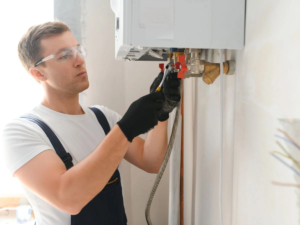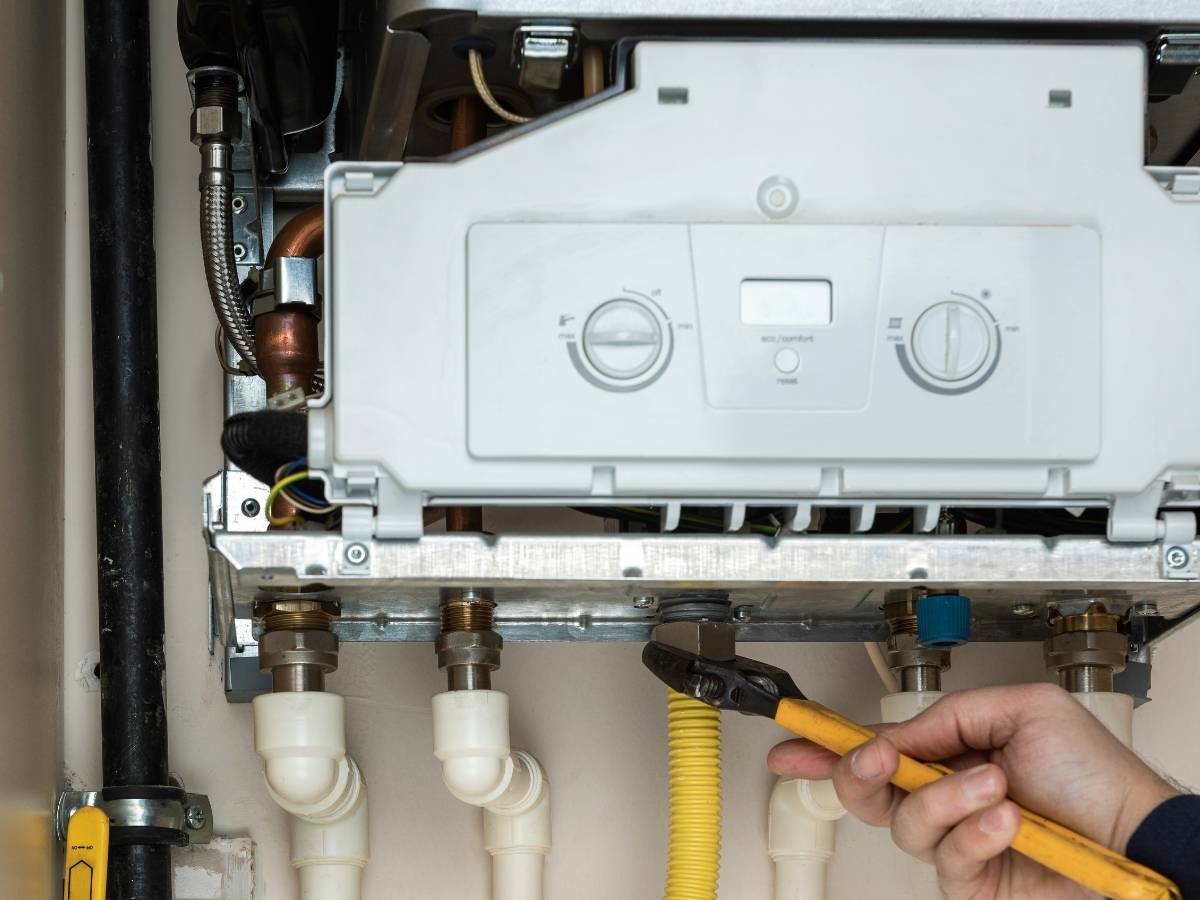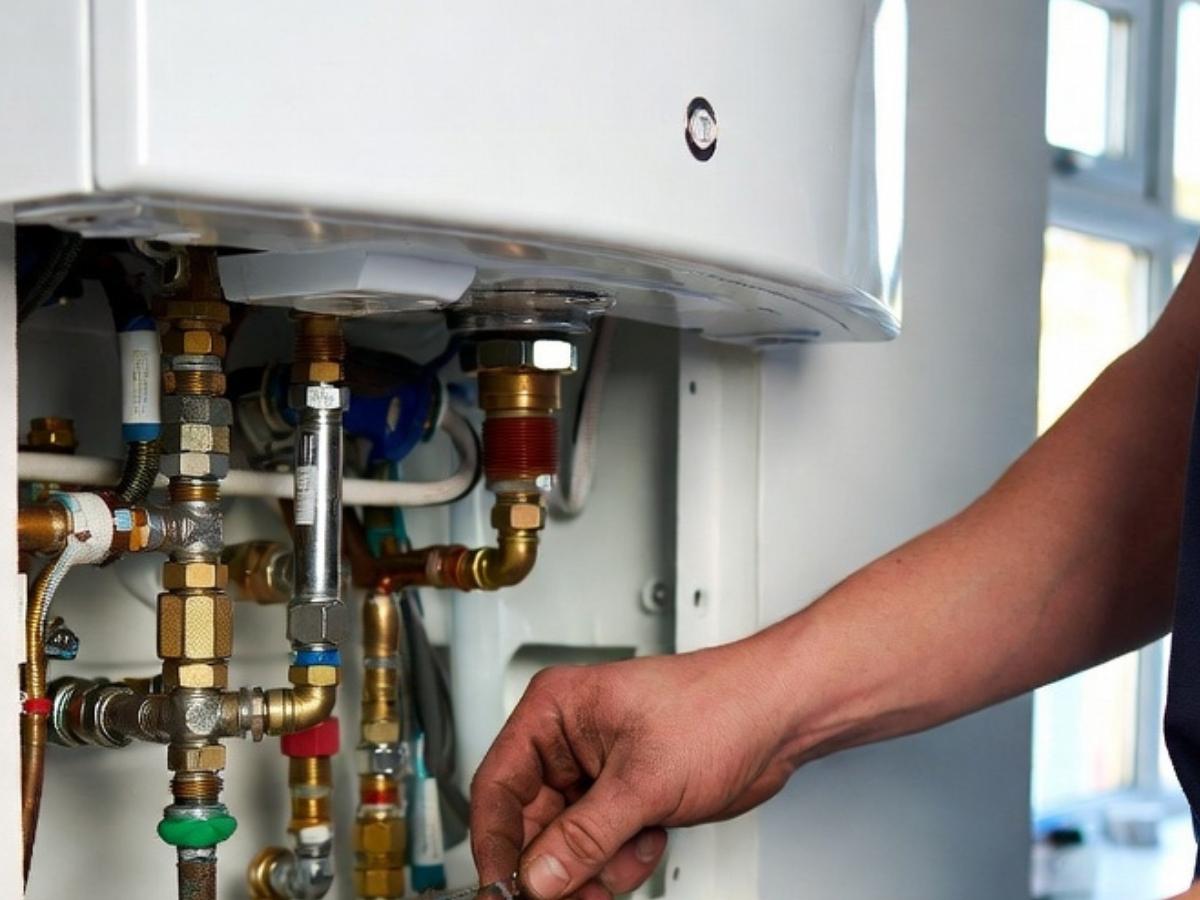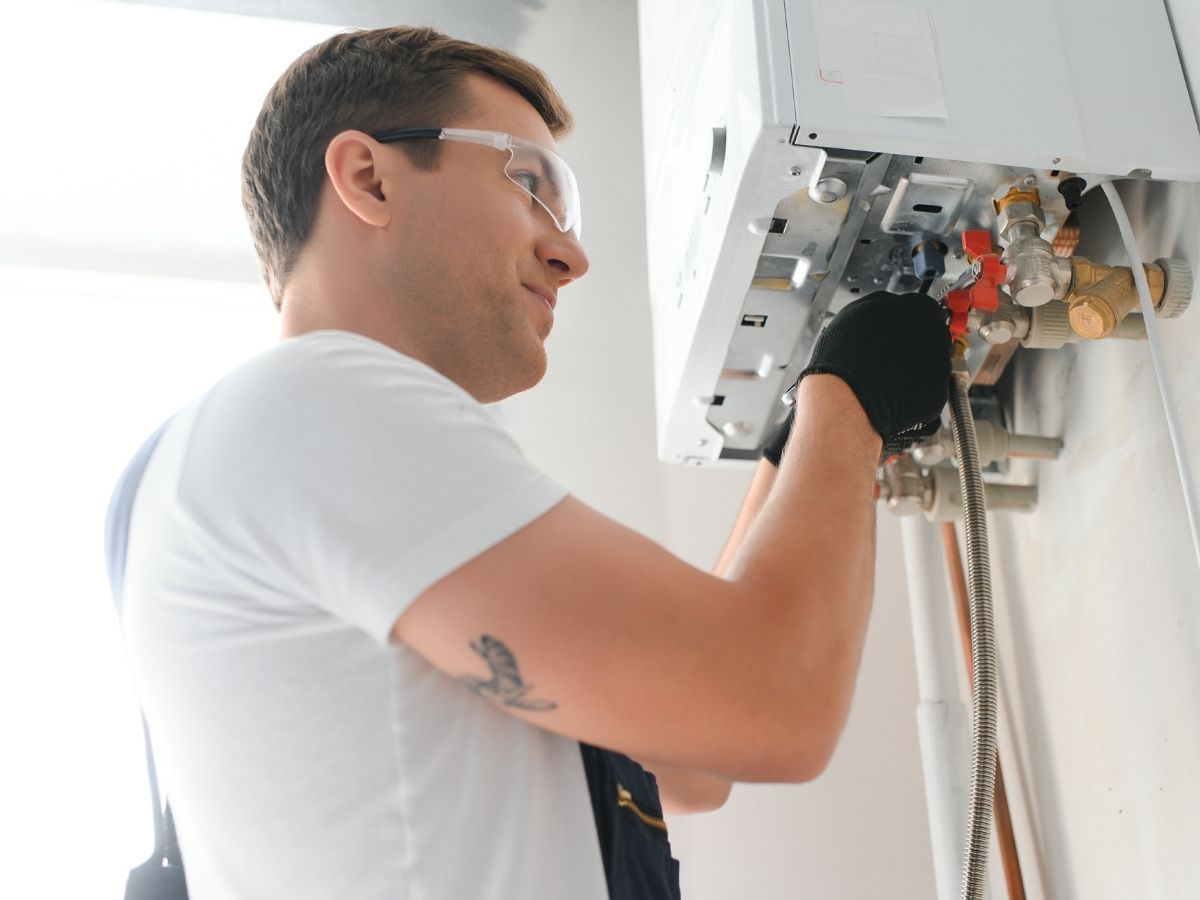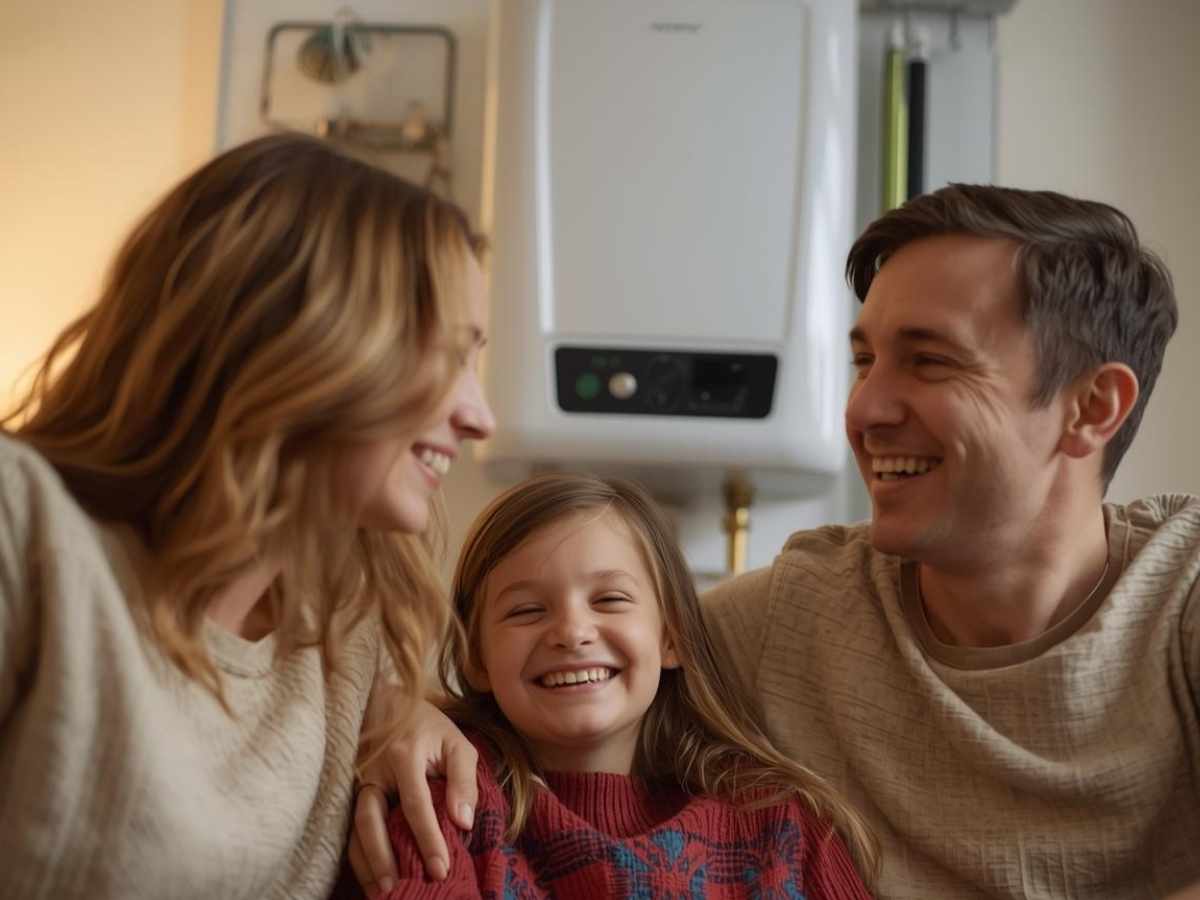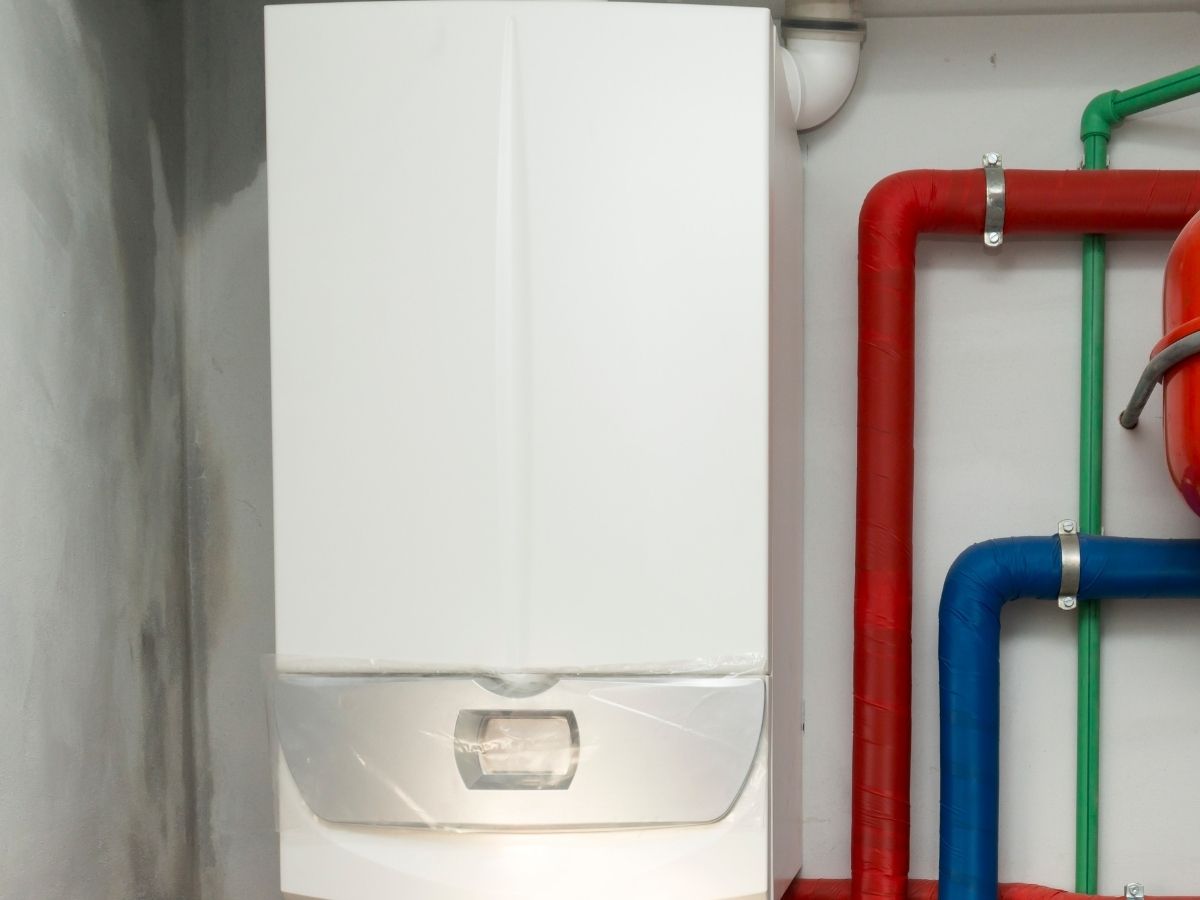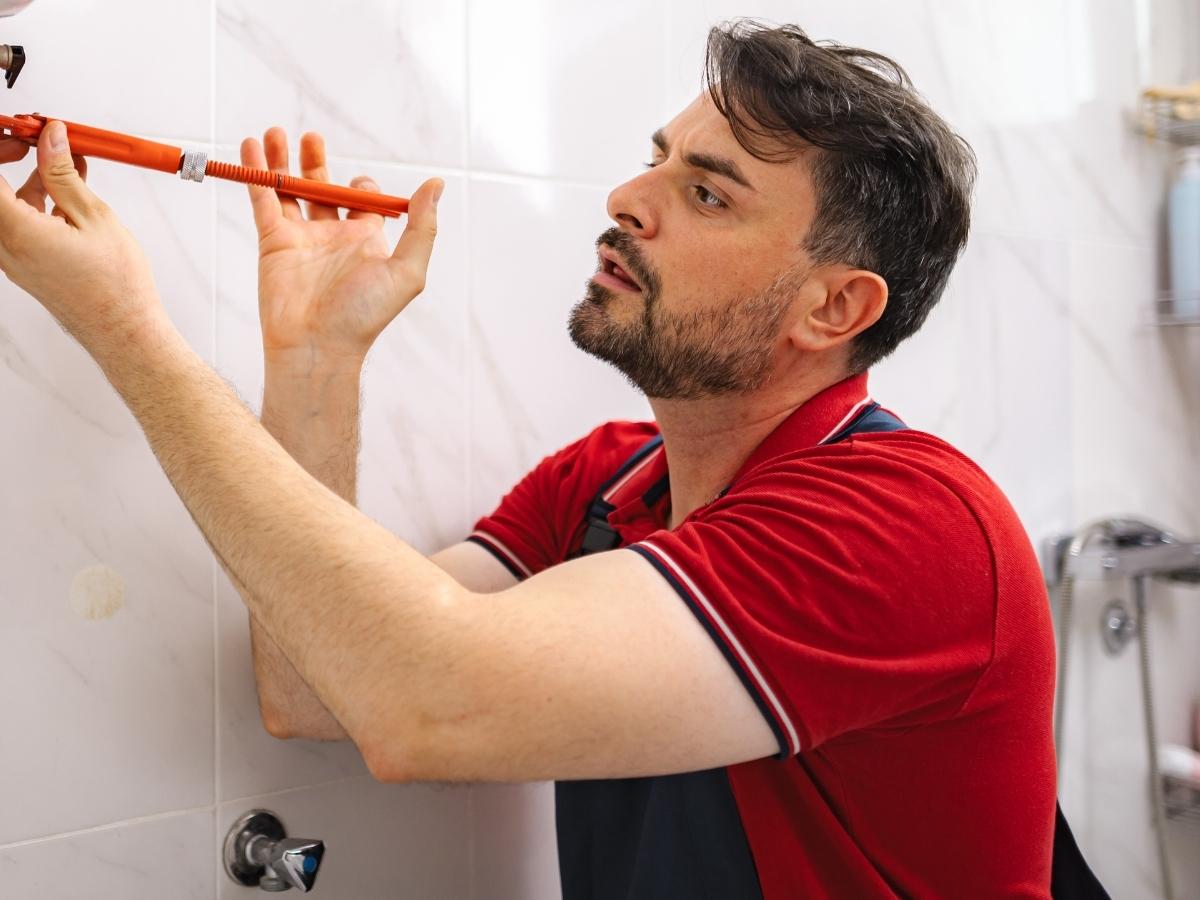Your home’s heating system is crucial for comfort and efficiency. Whether you’re replacing an old boiler or installing a new boiler, this guide will help you make an informed decision about choosing the right boiler for your needs. Many companies offer promotional deals and savings on all kinds of boilers, but what do you actually need for a new boiler installation?
Understanding Your Boiler Needs
What is a Boiler and How Does it Work?
A boiler is a crucial component of your home’s heating system, responsible for providing both hot water and central heating. It works by burning fuel, such as gas or oil, to heat water, which is then circulated through a network of pipes to radiators and taps. Modern boilers are designed to be highly energy-efficient, incorporating features like condensing technology and smart controls to optimise performance. This means they can deliver consistent heating and hot water while minimising energy consumption and reducing your heating bills.
Benefits of a New Boiler
Installing a new boiler can bring numerous benefits to homeowners. Here are some of the key advantages:
-
Energy Efficiency: New boilers are designed to be more energy-efficient, which can lead to significantly lower heating bills and reduced carbon emissions. An A-rated boiler can save you hundreds of pounds annually.
-
Reliability: A new boiler is less likely to break down, reducing the need for costly boiler repairs and ensuring a consistent supply of hot water and central heating.
-
Improved Performance: Modern boilers can provide faster and more efficient heating, making your home warmer and more comfortable.
-
Increased Property Value: A new boiler installation can increase the value of your property, making it more attractive to potential buyers.
Understanding Different Types of Boilers
Combi Boilers
Combination or ‘combi’ boilers are the most popular choice in UK homes today. These units provide both heating and hot water directly from one compact system, without needing a separate water tank. They’re ideal for smaller homes and flats where space is at a premium. However, they might struggle if multiple taps are running simultaneously in larger households.
Examples: Worcester Bosch Greenstar 4000, Vaillant ecoTEC Pro, Ideal Logic+ Combi boiler
System Gas Boilers
System boilers work with a hot water cylinder but don’t need a tank in the loft. They’re excellent for homes with multiple bathrooms and higher hot water demands. While they take up more space than combi boilers, they can handle multiple hot water demands simultaneously and maintain good water pressure throughout your home.
Examples: Vaillant ecoTEC Plus System, Worcester Bosch Greenstar 8000 Style, Baxi Megaflo
Conventional Boilers
Also known as regular or heat-only boilers, conventional boilers work with both a hot water cylinder and a cold water tank. They’re typically found in older, larger homes and are ideal for properties where multiple people need hot water at the same time. They’re also suitable for areas with lower water pressure.
When considering boiler replacement, it’s important to understand the process and costs involved, as well as the benefits of new boiler warranties.
Examples: Glow-worm Energy Regular, Worcester Bosch Greenstar 21i, Ideal Logic Heat Only Boiler
Alternative Boiler Options
In addition to traditional gas boilers, there are several alternative boiler options available that can be more environmentally friendly and cost-effective:
-
Air Source Heat Pumps: These systems use outside air to provide heating and hot water. They can be a cost-effective and environmentally friendly alternative to traditional boilers, especially in milder climates.
-
Ground Source Heat Pumps: These systems use the natural heat of the earth to provide heating and hot water. They are highly efficient and sustainable, though they require more space and a higher initial investment.
-
Electric Boilers: These boilers use electricity to heat water and can be a convenient and cost-effective option for smaller homes or those with limited gas supply. They are also easier to install and maintain compared to gas boilers.
Sizing Your New Boiler Correctly
Property Assessment
The size of your home directly impacts the boiler power you’ll need. A small flat might only need a 24-30kW boiler, while a large family home could require 35kW or more. Consider:
-
Number of bedrooms and bathrooms
-
Total number of radiators
-
Typical hot water usage patterns
-
Property insulation levels
Common Sizing Mistakes
One of the biggest mistakes is choosing an oversized boiler. This isn’t just wasteful – it can lead to higher bills and unnecessary wear and tear. Equally, an undersized boiler will struggle to meet your heating demands and work inefficiently.
Choosing the right replacement boiler is crucial to avoid these sizing mistakes.
Avoiding Sizing Mistakes
To prevent these issues, it’s essential to assess your property’s heating requirements accurately:
-
Number of Radiators: Count all the radiators in your home, as this determines the boiler’s output needed to heat the space effectively.
-
Bathrooms and Hot Water Demand: Larger households with multiple bathrooms or frequent hot water use may need a system boiler or a more powerful combi boiler.
-
Property Size and Insulation: A well-insulated home may require a smaller boiler, while older, draughty properties might need a higher-capacity model to compensate for heat loss.
-
Usage Patterns: Consider how your household uses heating and hot water daily to determine the boiler’s capacity.
Professional boiler installations use calculations such as the boiler sizing rule of thumb or detailed heat loss assessments to ensure the right match.
Energy Efficient and Environmental Considerations
Understanding Efficiency Ratings
Modern boilers must be at least 92% efficient under UK regulations. Look for the ErP energy rating when comparing different models. A-rated boilers offer the best efficiency, potentially saving hundreds of pounds annually on energy bills.
Smart Technology Integration
Many new boilers can connect to smart controls, allowing you to:
-
Control heating from your phone
-
Set different temperatures for different rooms
-
Learn your heating patterns
-
Receive maintenance alerts
Boiler Safety and Regulations
Boiler Safety Features: What to Look For
When selecting a new gas boiler, it’s essential to consider safety features to ensure your home and family are protected. Here are some key safety features to look for:
-
Carbon Monoxide Detectors: These devices can detect the presence of carbon monoxide, a potentially deadly gas produced by faulty boilers. Installing a carbon monoxide detector can provide an early warning and prevent poisoning as Carbon Monoxide is colourless and can not be smelt.
-
Pressure Relief Valves: These valves help prevent boiler explosions by releasing excess pressure. They are a critical safety feature that ensures your boiler operates within safe pressure limits.
-
Thermostatic Controls: These controls help regulate boiler temperature and prevent overheating. They can also improve energy efficiency by maintaining optimal heating levels.
-
Regular Maintenance: Regular boiler servicing is essential for identifying potential safety issues and preventing accidents. An annual boiler service can ensure your new boiler operates safely and efficiently.
It’s also important to ensure that your new boiler is installed and maintained by a qualified Gas Safe registered engineer. This ensures compliance with safety regulations and standards, providing peace of mind that your heating system is safe and reliable.
Installation Costs and Financial Planning
Breaking Down the Costs
A new boiler installation typically ranges from £1,500 to £4,500, depending on:
-
The type and brand of boiler
-
Required system modifications
-
Property accessibility
-
Additional controls or equipment needed
Financial Support Options
Look into available government schemes and grants for energy-efficient heating systems. Some manufacturers also offer interest-free payment plans. It’s worth comparing quotes from multiple installers, but remember that the cheapest quote isn’t always the best value.
As we move towards a low-carbon future, it’s essential to consider what will replace gas boilers after 2025, with alternatives like air and ground source heat pumps becoming more prominent and energy efficient boilers on the rise who knows what the future has in store.
Finding and Vetting Qualified Installers
Essential Qualifications
When it comes to installing a new boiler, selecting the right installer is just as important as choosing the boiler itself. All gas boiler installers must be Gas Safe registered – this isn’t optional, it’s the law in the UK. Before making your decision, thoroughly verify the installer’s Gas Safe registration and take time to check their reviews and references. Experience matters significantly, so don’t hesitate to ask about their history with your chosen new boiler type and request examples of similar installations they’ve completed.
A professional installer should provide you with a detailed written quote that outlines all costs and work involved. This transparency helps avoid any surprises and ensures both parties understand the scope of work. Leading manufacturers like Worcester Bosch, who offer popular models such as the Greenstar 4000 and Greenstar 8000, often maintain lists of accredited installers who have specific training with their systems.
Installation Process
A proper boiler installation involves several crucial steps that shouldn’t be rushed or overlooked. The process begins with a thorough system flush to remove any debris or sludge from your existing pipework, followed by professional water treatment to prevent future corrosion. Your installer should then carefully set up all system controls and provide a clear, detailed explanation of how to operate your new boiler efficiently.
Warranty registration is another vital step that your installer should handle during the installation process. This documentation ensures you’re protected against potential future issues and maintains the validity of your manufacturer’s guarantee.
Boiler Maintenance and Future-Proofing
Regular Maintenance
Maintaining your new boiler is crucial for its longevity and performance. Annual servicing isn’t just a recommendation – it’s essential for maintaining your warranty validity and ensuring safe operation. Regular maintenance helps optimise your new boiler’s efficiency, prevent unexpected breakdowns, and can significantly extend its lifespan. A professional service should include a thorough inspection of all components, combustion efficiency tests, and necessary adjustments to ensure optimal performance. The average boiler service cost is around £60 – £120 depending on the boiler.
Future Considerations
Looking ahead, the heating industry is evolving with new technologies and environmental considerations. Many new boilers now come with smart features that can help you monitor and control your heating more effectively. When selecting your new boiler, consider models that are “hydrogen-ready,” as this could become increasingly important as the UK moves towards more sustainable heating solutions. This forward-thinking approach could save you money and hassle in the long run, as regulations and fuel sources continue to evolve.
Conclusion
Choosing a new boiler is a significant investment in your home’s comfort and efficiency. Take time to assess your needs, compare options, and find qualified installers. While the process might seem daunting, focusing on efficiency, proper sizing, and professional installation will ensure you make the right choice for your home.
As you consider your next steps in upgrading your home’s heating system, remember that expert guidance can make all the difference.
At Premier Gas, we’ve helped countless UK homeowners find their ideal heating solutions. Experience the peace of mind that comes with professional boiler installation. Contact us today to schedule your free quote and take the first step toward a warmer, more efficient home!



